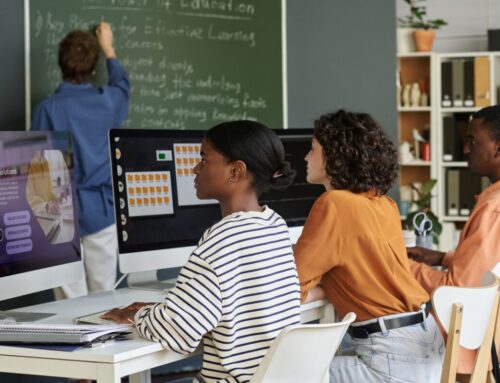
Embarking on an overseas study program is an exciting journey, but understanding how long does it take to get a f1 visa is crucial for planning your academic future. The F1 visa is essential for international students aiming to study in the United States, and the timeline can vary based on several factors. Knowing what to expect can help you manage your application process more effectively and avoid unnecessary delays.
Key Steps in the F1 Visa Process
- Application Preparation: Before you can apply for a US study visa, you must first secure admission to a SEVP-approved school. This step involves gathering necessary documents, such as your I-20 form, proof of financial support, and academic records.
- Visa Appointment and Processing: Once your application is complete, scheduling a visa appointment at a US embassy or consulate is next. The wait time for an appointment can vary, and processing times may take several weeks, depending on your location and the time of year.
Factors Influencing the Timeline
Several factors can influence how long it takes to get an F1 visa. These include the time of year, as peak application periods can lead to longer wait times, and the efficiency of the specific consulate handling your application. Staying informed and prepared can help streamline the process, ensuring you are ready to begin your studies on time.
Affordable, accredited education—Start now!
What Factors Influence the Duration of Getting an F1 Visa?
Understanding the timeline for obtaining an F1 visa is crucial for students planning to participate in overseas study programs. The question of “how long does it take to get an F1 visa?” is common among international students eager to start their educational journey in the United States. While the process can vary, several factors can influence the duration, from application preparation to consular processing times. Knowing these factors can help students better plan their application process and avoid unnecessary delays.
Application Preparation
- Document Gathering: Collecting necessary documents, such as financial statements and acceptance letters, can take time.
- Form Completion: Filling out the DS-160 form accurately is essential and can be time-consuming.
Consular Processing
- Interview Wait Times: Depending on the U.S. embassy or consulate, wait times for visa interviews can vary significantly.
- Administrative Processing: Occasionally, additional administrative processing may be required, extending the timeline.
By understanding these factors, students can better navigate how to apply for a US study visa and ensure they meet all requirements promptly, thus minimizing potential delays in their overseas study programs.
Step-by-Step Guide: From Application to Approval
Navigating the journey of obtaining an F1 visa is a crucial step for students eager to embark on overseas study programs in the United States. Understanding how long it takes to get an F1 visa can help you plan effectively and avoid unnecessary stress. The timeline can vary based on several factors, including the country of application and the time of year. However, with careful preparation and adherence to guidelines, you can streamline the process and focus on your academic aspirations.
Initial Steps: Preparing Your Application
- Research and Choose a Program: Before you can apply for a US study visa, you must first be accepted into a Student and Exchange Visitor Program (SEVP)-approved school.
- Receive Your Form I-20: Once accepted, your school will provide you with a Form I-20, which is essential for your visa application.
Application and Interview Process
- Complete the DS-160 Form: This online form is a crucial part of your application and must be filled out accurately.
- Schedule Your Visa Interview: The wait time for interviews can vary, so it’s wise to schedule early. Interviews are typically conducted at the U.S. Embassy or Consulate in your home country.
Final Steps: Approval and Travel
- Attend Your Interview: Be prepared to discuss your study plans and financial support.
- Visa Processing Time: After the interview, visa processing can take a few days to several weeks, depending on individual circumstances and local embassy workloads.
How to Expedite Your F1 Visa Process
Obtaining an F1 visa is a pivotal step for international students aiming to participate in overseas study programs in the United States. Understanding how long it takes to get an F1 visa is crucial for planning your academic journey. The process can vary significantly depending on several factors, including the time of year and the specific requirements of your home country.
Generally, it can take anywhere from a few weeks to several months, so starting early is key to ensuring a smooth transition to your studies abroad. Navigating the F1 visa application can be daunting, but there are ways to streamline the process.
Start Early
- Begin your application process as soon as you receive your acceptance letter from a U.S. institution.
- Schedule your visa interview promptly to avoid peak season delays.
Gather Necessary Documents
- Ensure all required documents, such as your I-20 form and financial statements, are prepared and accurate.
- Double-check for any additional requirements specific to your country.
Follow Up
- Regularly check the status of your application online.
- Contact the U.S. embassy or consulate if you encounter any delays or issues.
By following these steps, you can effectively manage how to apply for a US study visa and potentially reduce the time it takes to secure your F1 visa.
Affordable, accredited education—Start now!
Common Delays in the F1 Visa Application Process
Navigating the F1 visa application process can be a daunting task for many aspiring students eager to join overseas study programs in the United States. Understanding how long it takes to get an F1 visa is crucial for planning your academic journey. While the process is generally straightforward, several factors can cause delays, making it essential to be well-prepared and informed.
Administrative Processing Delays
One of the most common delays in the F1 visa application process is administrative processing. This can occur if additional information is needed to verify your application details. While this step is not always required, it can add weeks or even months to the timeline, affecting how long it takes to get a F1 visa.
Document Preparation Issues
Ensuring all documents are complete and accurate is vital when learning how to apply for a US study visa. Missing or incorrect paperwork can lead to significant delays. Double-checking your I-20 form, financial statements, and other required documents before submission can help prevent these setbacks.
How Long Does It Take to Get an F1 Visa Interview?
Understanding the timeline for securing an F1 visa is crucial for anyone planning to participate in overseas study programs in the United States. The process of obtaining an F1 visa can be complex, and knowing how long it takes to get an F1 visa can help you plan effectively and avoid unnecessary stress. This timeline can vary based on several factors, including the time of year and the specific U.S. embassy or consulate where you apply.
Factors Influencing the Timeline
- Application Volume: During peak seasons, such as the months leading up to the fall semester, embassies may experience higher volumes of applications, potentially extending wait times.
- Location: Processing times can differ significantly depending on the country and the specific U.S. consulate or embassy handling your application.
- Documentation: Ensuring all your documents are complete and accurate can prevent delays in scheduling your interview.
Steps to Expedite Your Process
- Early Application: Start your application process as soon as you receive your acceptance letter from a U.S. institution.
- Prepare Thoroughly: Gather all necessary documents, including your I-20 form, financial statements, and proof of ties to your home country.
- Monitor Consulate Updates: Stay informed about any changes in processing times or requirements by regularly checking the website of the U.S. consulate or embassy where you plan to apply.
By understanding how to apply for a US study visa and preparing accordingly, you can navigate the process more smoothly and increase your chances of a timely interview.
What to Expect After Your F1 Visa Interview
The journey to studying in the United States is an exciting adventure, but it often comes with the pressing question: how long does it take to get an F1 visa? Understanding the timeline is crucial for planning your overseas study programs effectively. After your F1 visa interview, the waiting period can vary, and knowing what to expect can ease your anxiety and help you prepare for your academic future.
Processing Time
Typically, the processing time for an F1 visa can range from a few days to several weeks. This duration depends on various factors, including the time of year, the volume of applications, and the specific U.S. embassy or consulate handling your case. It’s essential to apply early and keep in touch with the consulate to stay informed about your application status.
Next Steps
Once your visa is approved, you’ll receive your passport with the visa stamp. This is your green light to start planning your travel and accommodation for your overseas study programs. If your visa is delayed, don’t panic. Reach out to the consulate for updates and ensure all your documents are in order. This proactive approach can help you navigate any unexpected hurdles in how to apply for a US study visa.
Read Also: What Are the Best Overseas Study Programs?
How Degreesonline.education Can Help You Navigate the F1 Visa Process
Navigating the F1 visa process can be a daunting task for prospective international students eager to join overseas study programs in the United States. Understanding how long it takes to get an F1 visa is crucial for planning your educational journey. The timeline can vary based on several factors, including the country of application and the time of year. This is where Degreesonline.education steps in to streamline the process, ensuring you have the guidance needed to apply for a US study visa efficiently.
Expert Guidance and Resources
At Degreesonline.education, we offer comprehensive resources and expert advice to help you understand the intricacies of how to apply for a US study visa. Our team provides step-by-step guidance, ensuring you have all the necessary documentation and information to avoid common pitfalls that can delay your application. With our support, you can confidently navigate the application process, minimizing stress and uncertainty.
Personalized Support and Timely Updates
We recognize that each student’s situation is unique, which is why Degreesonline.education offers personalized support tailored to your specific needs. Our experts keep you informed with timely updates on your application status and any changes in visa regulations. By staying proactive and informed, you can better manage your expectations regarding how long it takes to get an F1 visa, allowing you to focus on preparing for your exciting academic adventure in the US.
Affordable, accredited education—Start now!
FAQs
- How long does it take to get an F1 visa?
The time it takes to get an F1 visa varies depending on factors such as the country of application, the time of year, and the specific U.S. embassy or consulate processing your application. Typically, it can take anywhere from a few weeks to a few months. It is advisable to apply for the visa at least 3 to 4 months before your intended travel date to allow time for processing. - What factors influence the processing time of an F1 visa?
Several factors can affect the processing time, including the volume of applications at the U.S. embassy or consulate, the completeness of your application, the need for additional documentation, and the time required for a visa interview. If additional background checks are necessary, this may also delay the process. - Can I expedite the F1 visa process?
In some cases, the U.S. embassy or consulate may offer expedited visa processing for urgent cases. This typically applies to emergencies, such as a last-minute admission to a school or a scheduled start date that is approaching quickly. You should check with the specific embassy for their expedited processing policies.




